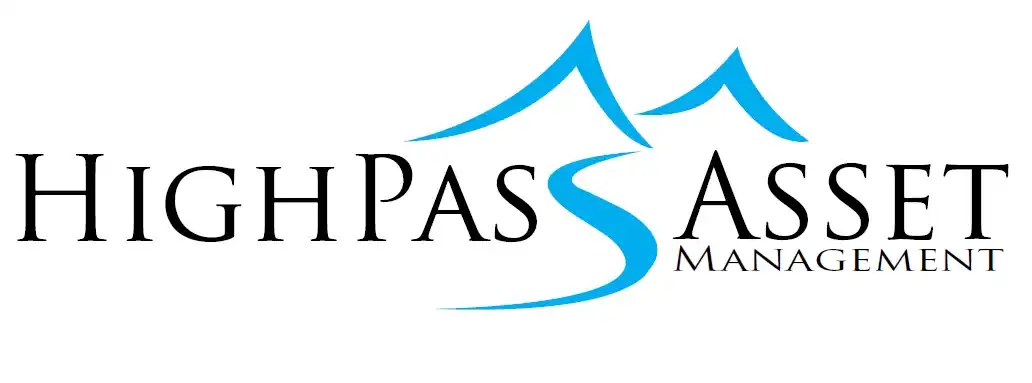Tax Planning
Smart tax planning isn’t just about filing your taxes—it’s about looking ahead. At High Pass Asset Management, our proactive tax planning strategies help reduce your lifetime tax burden, preserve your wealth, and ensure you’re making the most of every financial opportunity. Whether you’re focused on retirement, charitable giving, or leaving a legacy, we work to create tax-efficient strategies aligned with your long-term goals.
Smart Tax Planning Starts Early
Our tax planning process includes:
Estimated Payments Done Right
Too often, CPAs give little guidance throughout the year.
We stay on top of your income changes and will work with you or your CPA to help you avoid surprises at tax time by projecting your tax liability and recommending appropriate estimated payments throughout the year. Proactive tax planning keeps you in control of your cash flow and helps you avoid penalties, underpayment interest, or last-minute stress.
Choosing Investments with Tax Advantages
Reduce Taxes Through Strategic Investment Choices
Are you using investments that give you tax advantages? T-bills and government securities are state income tax-exempt. Many equities pay qualified dividends, which are taxed at a lower rate. Municipal bonds are federally tax-exempt. We help clients build portfolios based on their unique circumstances with a goal of reducing taxes.
Donor-Advised Funds for Giving Smart
Avoid capital gains and get a tax deduction immediately.
By donating appreciated securities into a donor-advised fund, you gain control over how and when to support your favorite causes while reaping valuable tax benefits. We’ll guide you through setting up and managing these giving vehicles as part of a broader tax planning strategy that eliminates capital gains taxes and supports your philanthropic goals.
Gifting Strategies to Lower Estate Taxes
Help your family now while reducing future taxes.
Strategic lifetime gifting is a powerful way to reduce your taxable estate while supporting loved ones or charitable causes. We advise clients on tax-free gifting strategies to remove assets from their estate, reducing exposure to estate tax while supporting loved ones during their lifetimes. This includes making the most of your annual gift tax exclusion and other gifting opportunities using trusts, custodial accounts, or direct payments.
Minimizing Taxes Across Generations
Tax planning isn’t just about today—it’s about your legacy.
Smart estate planning isn’t just about passing on wealth—it’s also about minimizing taxes on that wealth transfer. Our strategies aim to reduce the combined tax hit from federal estate, gift, and income taxes so your heirs inherit more and pay less. We collaborate with your legal team to help structure your estate in ways that reduce income and estate tax liabilities for your heirs, ensuring more of your legacy stays intact.

Tax-Efficient Portfolio Design
Every investment decision has tax consequences.
We actively manage your investment portfolios with efficient tax planning in mind: harvesting losses, deferring gains, and navigating tax brackets to limit the impact of taxes on your returns. Our approach includes strategies such as tax-loss harvesting, asset location optimization, and minimizing short-term capital gains—each decision guided by your long-term financial and tax planning goals.
Smarter College Savings
Avoid unnecessary taxes on your child’s education fund.
With education costs rising, we help you choose tax-advantaged college savings plans that qualify for state deductions and grow tax-free when used for qualified expenses. Saving for education through 529 plans and other tax-advantaged accounts can provide meaningful state and federal tax benefits. We help you integrate education savings into your broader tax planning so you can support future generations while maximizing available deductions and credits.

Collaborating with Your CPA During Tax Season

Build a Smarter Tax Strategy
Avoid unnecessary taxes on your child’s education fund.
With education costs rising, we help you choose tax-advantaged college savings plans that qualify for state deductions and grow tax-free when used for qualified expenses. Saving for education through 529 plans and other tax-advantaged accounts can provide meaningful state and federal tax benefits. We help you integrate education savings into your broader tax planning so you can support future generations while maximizing available deductions and credits.
Tax you Pay on $50k of Dividend Income. Ordinary vs Qualified Dividends.
How much federal tax do you pay on $50,000 of dividend income? The amount will vary based upon the type of dividend, ordinary vs qualified, and how much you receive from wages, social security, IRA distributions, etc. In this video I review four different scenarios to show the tax differences on $50,000 of dividend income based upon stage of life and other income sources. You will see right away that for most people, they will pay significantly less tax on qualified dividends vs ordinary dividends. Also, investors should be aware that annuity income, rental income and interest income are all taxed in the same manner as ordinary dividends; i.e. taxed as ordinary income. This video only considers federal tax since each state has its own tax unique tax rate. After watching this video you will have a better understanding of how dividends are taxed.
$$$
